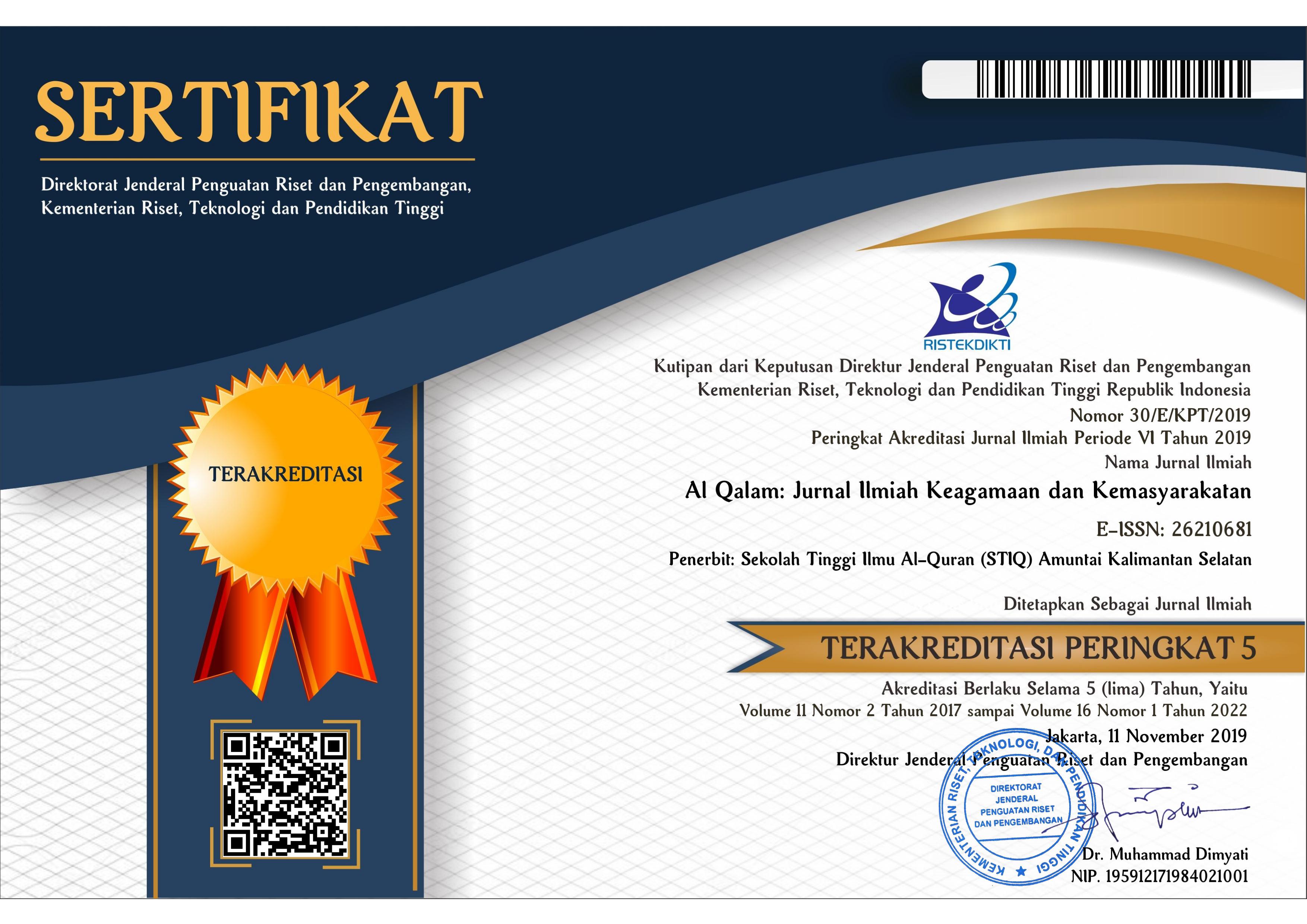Bullying Behavior in School Reviewed from Forgiveness and Peer Social Support
Abstract
Bullying is an important issue in the Indonesian education system, so efforts are needed to identify the causes. This study aimed to analyse the relationship between forgiveness and peer support with bullying behaviour at school. The research hypothesis is that there is a relationship between forgiveness and peer support with bullying behaviour at school; a negative relationship between forgiveness and bullying behaviour at school; and a negative relationship between peer support and bullying behaviour at school. The study used a quantitative correlational approach and involved 102 high school students from Eastern Indonesia who had experienced bullying at school. Data were obtained using a scale distributed online. Data analysis used multiple regression analysis. The results of this study showed a significant relationship between forgiveness and peer support with bullying behaviour at school (F (2, 99) = [9.813], p = 0.001). Schools, parents and students need to understand forgiveness and the role of peers in preventing bullying behaviour.
Keywords
Full Text:
PDFReferences
Bulan, Yunita Embong, Zahra Zahra, and Indah Khairun Nisa’. “Pengaruh Lingkungan Sosial Terhadap Perkembangan Mental Remaja.” TAUJIHAT: Jurnal Bimbingan Konseling Islam 3, no. 2 (2022): 99–115. https://doi.org/10.21093/tj.v3i2.6481.
Cutrona, Carolyn E., Valerie Cole, Nicholas Colangelo, Susan G. Assouline, and Daniel W. Russell. “Perceived Parental Social Support and Academic Achievement: An Attachment Theory Perspective.” Journal of Personality and Social Psychology 66, no. 2 (1994): 369–78. https://doi.org/10.1037/0022-3514.66.2.369.
Egan, Luke A., and Natasha Todorov. “Forgiveness as a Coping Strategy to Allow School Students to Deal with the Effects of Being Bullied: Theoretical and Empirical Discussion.” Journal of Social and Clinical Psychology 28, no. 2 (2009): 198–222. https://doi.org/10.1521/jscp.2009.28.2.198.
Flanagan, Kelly S., Kristin K. Vanden Hoek, Jennifer M. Ranter, and Holly A. Reich. “The Potential of Forgiveness as a Response for Coping with Negative Peer Experiences.” Journal of Adolescence 35 (2012): 1215–23. https://doi.org/10.1016/j.adolescence.2012.04.004.
García-Vázquez, Fernanda Inéz, Lizeth Guadalupe Parra-Pérez, and Angel Alberto Valdés-Cuervo. “The Effects of Forgiveness, Gratitude, and Self-Control on Reactive and Proactive Aggression in Bullying.” International Journal of Environmental Research and Public Health 17, no. 5760 (2020): 1–14. https://doi.org/10.3390/ijerph17165760.
Gina Islamiyati, Abu Bakar Fahmi, and M. Abdul Halim Sani. “The Influence of Humility and Forgiveness on Bullying Behavior in Islamic Student.” G-Couns: Jurnal Bimbingan Dan Konseling 9, no. 1 (2024): 323–36. https://doi.org/10.31316/gcouns.v9i1.6532.
Hunter, Simon C., and James M.E. Boyle. “Appraisal and Coping Strategy Use in Victims of School Bullying.” British Journal of Educational Psychology 74 (2004): 83–107. https://doi.org/10.1348/000709904322848833.
Inuhan, Yuliana Yosefina, Eka Aryani, and Abdul Hadi. “Forgiveness and Subjective Well-Being in Victims of Bullying at a Vocational High School.” In Proceedings of the 2nd Annual International Conference: Reimagining Guidance and Counselling in the VUCA Era (AICGC 2023), edited by L. Kurniawan et al. no. Advances in Social Science, Education and Humanities Research 845. Atlantis Press, 2024. https://doi.org/10.2991/978-2-38476-234-7_18.
Krisnana, Ilya, Praba Diyan Rachmawati, Yuni Sufyanti Arief, et al. “Adolescent Characteristics and Parenting Style as the Determinant Factors of Bullying in Indonesia: A Cross-Sectional Study.” International Journal of Adolescent Medicine and Health, 2019, 1–9. https://doi.org/10.1515/ijamh-2019-0019.
Lazarus, Richard S, and Susan Folkman. Stress, Appraisal, and Coping. Springer, 1984.
McCullough, Michael E., Lindsey M. Root, and Adam D. Cohen. “Writing about the Benefits of an Interpersonal Transgression Facilitates Forgiveness.” Journal of Consulting and Clinical Psychology 74, no. 5 (2006): 887–97. https://doi.org/10.1037/0022-006X.74.5.887.
McCullough, Michael E., Jr. Worthington, Everett L., and Kenneth C. Rachal. “Interpersonal Forgiving in Close Relationships.” Journal of Personality and Social Psychology 73, no. 2 (1997): 321–36. https://doi.org/10.1037//0022-3514.73.2.321.
Mikolajczak-Degrauwe, Kalina, Sybren R. Slimmen, Dylan Gillissen, et al. “Strengths, Weaknesses, Opportunities and Threats of Peer Support among Disadvantaged Groups: A Rapid Scoping Review.” International Journal of Nursing Sciences 10 (2023): 587–601. https://doi.org/10.1016/j.ijnss.2023.09.002.
Olweus, Dan. “School Bullying: Development and Some Important Challenges.” Annual Review of Clinical Psychology 9, no. 14 (2013): 1–30. https://doi.org/10.1146/annurev-clinpsy-050212-185516.
Pramesti, Izqi Fajriati. Pemaafan Diri Pada Pelaku Melukai Diri. Yogyakarta, 2021.
Puspita, Valentina Diyan, and Erin Ratna Kustanti. “Hubungan Antara Dukungan Sosial Teman Sebaya Dengan Perundungan Pada Siswa SMP PL Domenico Savio Semarang.” Jurnal Empati 7, no. 4 (2018): 252–59.
Sarafino, Edward P, and Timothy W Smith. Health Psychology: Biopsychosocial Interactions. Seventh. John Wiley and Sons, Inc, 2011.
Sari, Reni Novrita, and Ivan Muhammad Agung. “Pemaafan Dan Kecenderungan Perilaku Bullying Pada Siswa Korban Bullying.” Jurnal Psikologi 11, no. 1 (2015): 32–36.
Sari, Yuli Permata, and Welhendri Azwar. “Fenomena Bullying Siswa: Studi Tentang Motif Perilaku Bullying Siswa Di SMP Negeri 01 Painan, Sumatera Barat.” Ijtimaiyya: Jurnal Pengembangan Masyarakat Islam 10, no. 2 (2017): 333–67. https://doi.org/10.24042/ijpmi.v10i2.2366.
Sitompul, Almaidha. “Data Statistik Kasus Perundungan Di Sekolah Dari 2019-2023.” Inilah.Com, 2023.
Sugiyono. Metode Penelitian Kuantitatif, Kualitatif Dan R&D. Alfabeta, 2019.
Wan, Zhengwei, and Shuyu Huang. “The Relationship between Parental Emotional Warmth and School Bullying: The Chain Mediation Role of Social Support and Emotional Regulation.” PLoS ONE 20, no. 5 (2025): 1–11. https://doi.org/10.1371/journal.pone.0323261.
Worthington, Everett L., and Michael Scherer. “Forgiveness Is an Emotion-Focused Coping Strategy That Can Reduce Health Risks and Promote Health Resilience: Theory, Review, and Hypotheses.” Psychology and Health 19, no. 3 (2004): 385–405. https://doi.org/10.1080/0887044042000196674.
Yudanti, Alifia Putri, and Rizky Nauvalif. “Menilik Fenomena ‘Bullying’ Pelajar Indonesia.” Kompas.Com, September 25, 2023.
Yuliani, Nunung. Fenomena Kasus Bullying Di Sekolah. 2019.
Yusri, Nur ’Aisyiah, and Sonya Regina Maris. “Hubungan Dukungan Sosial Teman Sebaya Dengan Problem Solving Siswa SMP.” Jurnal Psikologi Islam Al-Qalb 9, no. 2 (2017): 118–26.
Yusuf, Husmiati, and Adi Fahrudin. “Pb Fahrudin (Faktor Penyebab).” Jurnal Psikologi Undip 11, no. 2 (2012): 1–10.
DOI: http://dx.doi.org/10.35931/aq.v19i6.5680
Refbacks
- There are currently no refbacks.
Copyright (c) 2025 Febe Eunike Panyuwa, Augustina Sulastri

This work is licensed under a Creative Commons Attribution 4.0 International License.
Al Qalam: Jurnal Ilmiah Keagamaan dan Kemasyarakatan
index by:
Publish by:
Sekolah Tinggi Ilmu Al-Qur'an Amuntai
Contact us:
Address: Jl. Rakha Pakapuran, Amuntai Utara
Kabupaten : Hulu Sungai Utara
Kode Pos : 71471
Provinsi : Kalimantan Selatan
Telephone : 085251613000
Email: hafizhihusinsungkar@gmail.com

This work is licensed under a Creative Commons Attribution 4.0 International License


